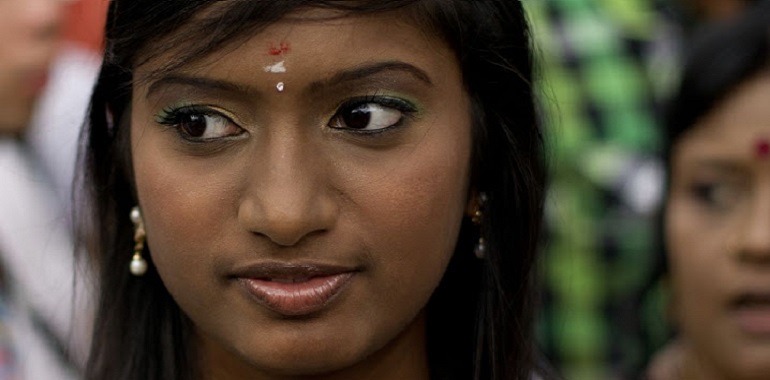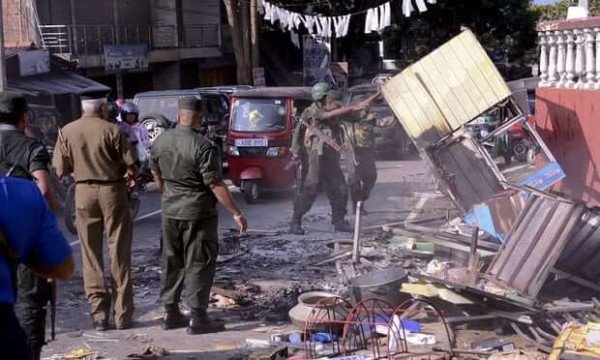
On the outside, India might be a country of homogeneously brown people, but on the inside, people fall within a broad color range – from dark brown to almost white.
Unfortunately, this diversity in skin color has created a hierarchy of beauty – a hierarchy that tells you that the light-skinned people are the epitome of beauty, while the dark-skinned people fall at the bottom.
I was unaware of this until I was in the sixth grade when I found out that my dark skin could put me in a tough spot and stunt my self-esteem.
My light-skinned classmates ridiculed the color of my skin. One of them called me “black paint.” I pretended I didn’t hear him and walked away.
In the ninth grade, when I was at a friend’s house along with some other friends, one of them refused to drink coffee when offered and instead pointed at me and said, “I don’t want to drink coffee because I don’t want to look like her.”
I didn’t understand what it meant until another friend replied to him, “You don’t get dark by drinking coffee.”
And then as the conversation went back to coffee and the odd logic of 14-year-olds, I sat there quiet and embarrassed among my group of friends, wishing I were invisible or just some place else.
I hated going out in the sun. I hated going out at all.
I remember once my mother had asked me to get milk from the near-by milk booth, and while I was walking back home from there, I noticed two young men looking at me. One of them whistled and the other blurted “But she’s not pretty!”
At 15 years of age, a stranger calling me “not pretty” aloud was as new and shocking to me as being sexually harassed on the street for the first time.
I hated wearing white and black. I hated taking pictures in a room that wasn’t well-lit because I knew that while the faces of all my fair-skinned friends would show up in the picture, mine wouldn’t. And the idea of being embarrassed in front of your friends was life-threatening.
I was not just a dark-skinned child in the classroom, but an “other” since I belonged to the southern state of Tamil Nadu and not to the northern cities that I had lived in through the years.
To my North Indian classmates and acquaintances, a “stereotypical” Tamilian was something like this: a dark-skinned, Tamil-speaking person who eats only idlis and dosas, and who speaks English and Hindi with a heavy Tamil accent.
Luckily, I didn’t have a Tamil accent while speaking Hindi or English, so I was spared from any ridicule in that department.
Growing up in three cities where Hindi was spoken, I got used to Hindi. In a way, it became my first language, the language I am most comfortable in. English followed. But Tamil was nowhere in sight.
My skin color, the stereotyped Tamil culture, and people making fun of Tamil accents, pulled me away from anything Tamil. So much so that I could understand what my parents said to me in Tamil, but I couldn’t reply to them in the same language.
I didn’t know how to speak Tamil, and I didn’t want to. I didn’t want to celebrate any Tamil festival, or watch Tamil movies, or listen to Tamil songs. To feel good about myself, sometimes I looked down upon my parents when they expressed their Tamil identity.
During most of my teenage years, I put on a mask, trying to hide where I came from.
I told people I didn’t know anything about the culture I belonged to so that they could think I was just like them. At every chance I could, I tried withdrawing my affiliation with my culture.
Because I was brought up in places where I experienced the culture of my friends more than that of my parents, I felt the culture I saw around me was somehow cooler and better than the one I belonged to.
I now know that it wasn’t cooler or any better, but just different. I didn’t know it then...read more.
Feature image sourced from Everyday Feminism.
























